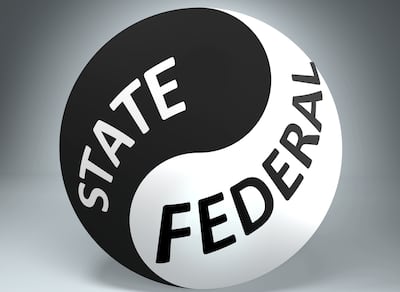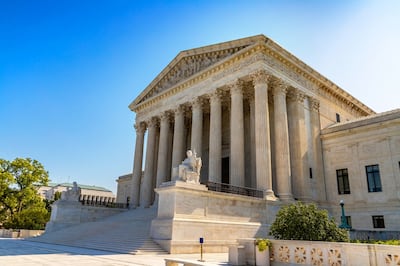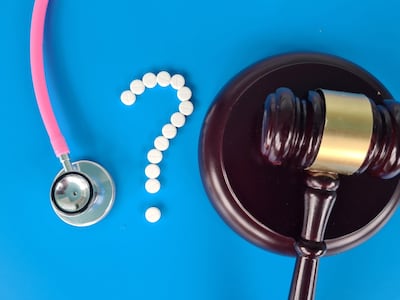Litigation
Bayer is the latest company seeking compensation from COVID-19 vaccine manufacturers for allegedly infringing patents.
The latest step in the long-running saga of Hikma and Amarin’s induced infringement dispute over Vascepa is a US Supreme Court review of the litigation, which could result in changes to generic drug skinny-label policy.
The agency is "reconsidering" manufacturer plans for the 340B rebate model in light of court decisions imposing a temporary stay on implementation.
“Section viii cannot function as Congress intended,” if a Federal Circuit Court ruling stands, the US solicitor general argued in urging the Supreme Court to review and reverse the closely-watched Hikma Vascepa skinny-label case.
A federal judge in Hawaii ruled the FDA failed to consider statutory factors relevant to the REMS and provide a “reasoned explanation” for its restrictive treatment of the drug, but remand could result in an agency determination that more extensive restrictions are needed.
Pink Sheet reporter and editors discuss the FDA’s role in the Astra Zeneca Most Favored Nation drug pricing deal and the Justice Department interpreting the off-label promotion laws differently than the FDA.
Recent Justice Department filings may suggest it is rethinking allowances for drug manufacturers to communicate scientific information on unapproved uses to healthcare providers.
The Trump Administration may differ from the Biden Administration in some areas of health care antitrust enforcement, but experts said some Biden-era priorities may be maintained.
MSN Laboratories wins another case against Novartis and will keep approval for its generic version of Entresto. The decision effectively confirms that US FDA can approve ANDA labels that make limited wording changes to carve around patent-protected indications, reinforcing the agency’s flexibility.
The agreement to resolve or stay numerous legal and administrative disputes resulted from a recent appeals court decision and the new agency leadership's receptiveness to negotiations, said Vanda, which has filed a barrage of challenges against the FDA in recent years.
In its latest attempt to curtail generic versions of Hetlioz, Vanda Pharmaceuticals asked FDA Commissioner Martin Makary to reverse a previous agency decision upholding two ANDA approvals, claiming an “unacceptable culture of bias toward approving generic drugs” at the agency.
Complaint names LillyDirect in action targeting the company’s free nurse and reimbursement support programs for health care providers.
Novartis failed to stop MSN from launching a generic Entresto and saw an earlier temporary ban lifted, potentially opening the market to competition before a final decision on a US patent dispute.
The FDA law establishing REMS authority does not preempt a West Virginia law that would restrict mifepristone use in the state, an appeals court said, a decision that could have broader ramifications for the agency’s authority to ensure drug access.
The FDA concluded that generic tasimelteon products held by Teva and MSN Labs meet all statutory bioequivalence requirements and there was no “mistake” or untrue statement in the original ANDA approvals.
HHS and its agencies violated the law by swiftly implementing “sweeping and poorly thought-through directives that ordered the bulk removal of healthcare resources,” including FDA draft guidances on diversity action plans and sex differences in clinical trials, a federal court said.
The US Supreme Court is seeking the administration's view following the Federal Circuit decided to reopen Amarin’s case against the ‘skinny-label’ generic Vascepa (icosapent ethyl).
Lupin became the latest ANDA sponsor to settle patent-infringement litigation over Harmony Biosciences’ Wakix (pitolisant hydrochloride), which has been touted as a potential blockbuster.
The suits are an early test of the Arkansas law banning company ownership of PBMs and pharmacies in the state, as other states consider similar legislation.
Acadia’s Nuplazid for hallucinations and delusions associated with Parkinson’s disease psychosis appears safe from generic competition until well into the next decade, following a favorable infringement and validity decision by a US district court.




















